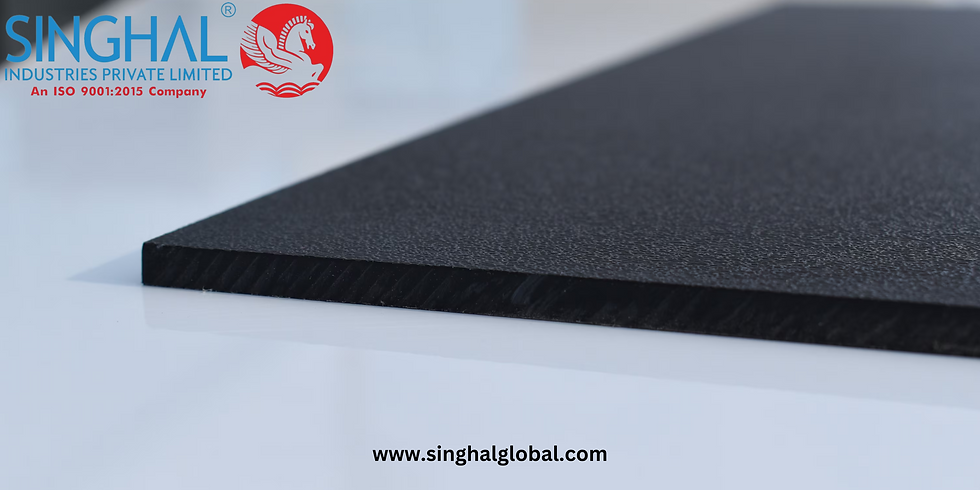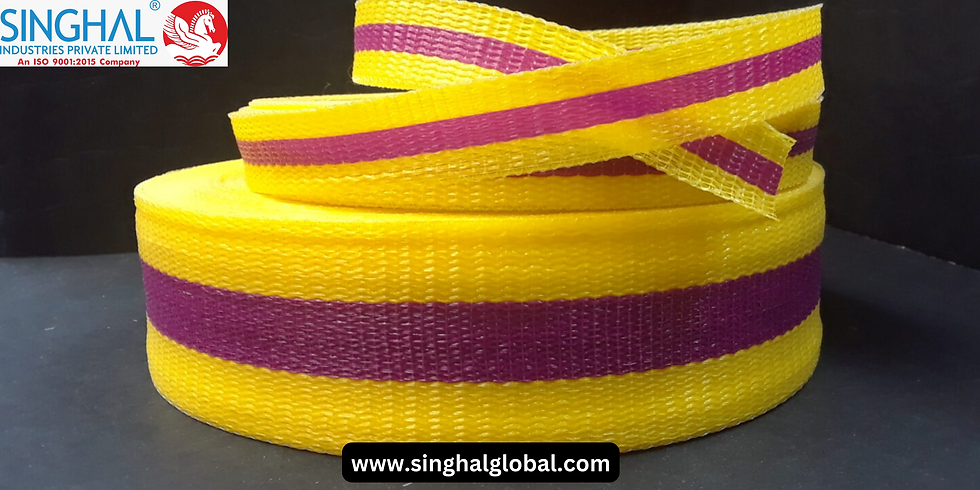Quality You Can Trust – FIBC Bulk Bags for Every Industry!
- Akash Pathak
- Jun 14, 2024
- 4 min read

In today's fast-paced industrial landscape, efficiency, reliability, and quality are paramount. Among the myriad tools and solutions that industries utilize to enhance their operations, Flexible Intermediate Bulk Containers (FIBC bulk bags) have emerged as an indispensable asset. These versatile containers, commonly referred to as FIBC bags, have revolutionized the way materials are stored, handled, and transported across various sectors. From agriculture to construction, pharmaceuticals to chemicals, FIBC bulk bags offer unparalleled benefits, underscoring their status as a quality you can trust for every industry.
Versatility and Adaptability of FIBC Bags
One of the primary reasons for the widespread adoption of FIBC bulk bags is their remarkable versatility. These bags are designed to handle a diverse range of materials, including fine powders, granular products, and even hazardous substances. The adaptability of FIBC bulk bags to different industry requirements is a testament to their robust engineering and thoughtful design.
Agricultural sectors, for instance, benefit greatly from the use of FIBC bags for the storage and transportation of grains, seeds, and fertilizers. The bags' ability to protect contents from moisture, pests, and contamination ensures that agricultural products reach their destination in optimal condition. Similarly, the construction industry leverages FIBC bulk bags for transporting sand, gravel, and cement, capitalizing on their durability and ease of handling.
Manufacturing Excellence of FIBC Bags
The manufacturing process of FIBC bulk bags is a meticulous one, designed to meet stringent quality standards. FIBC bags manufacturers employ advanced techniques and high-quality materials to produce bags that can withstand heavy loads and harsh conditions. These bags are typically made from woven polypropylene fabric, known for its strength and resistance to tearing. The fabric is further treated to enhance UV resistance, ensuring that the bags can endure prolonged exposure to sunlight without degrading.
Moreover, FIBC bulk bags are available in various designs, each tailored to specific applications. For example, some FIBC bulk bag are equipped with liners to provide an additional barrier against moisture and contamination, making them ideal for the food and pharmaceutical industries. Others feature specialized discharge spouts for easy and controlled release of contents, which is particularly useful in industries dealing with fine powders and granular materials.
Environmental and Economic Benefits
In addition to their practical advantages, FIBC bulk bags offer significant environmental and economic benefits. These bags are reusable and recyclable, contributing to sustainable practices across industries. By opting for FIBC bags, companies can reduce their reliance on single-use packaging materials, thereby minimizing their environmental footprint.
Economically, FIBC bulk bags present a cost-effective solution for material handling and transportation. Their lightweight nature reduces shipping costs, while their high load capacity minimizes the need for multiple trips. Furthermore, the durability of FIBC bags means that they can be used repeatedly, providing long-term value for businesses.
Safety and Compliance
Safety is a critical concern in any industry, and FIBC bulk bags are engineered to meet rigorous safety standards. These bags undergo extensive testing to ensure their strength and reliability under various conditions. Key safety features of FIBC bags include load-bearing loops that facilitate secure lifting, reinforced stitching to prevent tearing, and anti-static properties to reduce the risk of sparks in flammable environments.
Compliance with industry regulations is another crucial aspect of FIBC bulk bag manufacturing. FIBC bags manufacturers adhere to international standards such as ISO, ensuring that their products meet or exceed the required specifications for safety and performance. This compliance provides industries with the assurance that their material handling processes are both safe and efficient.
Conclusion
FIBC bulk bags have established themselves as a reliable and indispensable tool across a multitude of industries. Their versatility, durability, and adaptability make them an ideal solution for storing and transporting a wide range of materials. With a focus on quality manufacturing, environmental sustainability, and safety compliance, FIBC bags manufacturers continue to innovate, ensuring that these bulk bags meet the evolving needs of various sectors.
As industries seek efficient, cost-effective, and eco-friendly solutions, FIBC bulk bags stand out as a quality choice that delivers on all fronts. Their widespread use and proven performance underscore the trust that industries place in these versatile containers. Whether in agriculture, construction, pharmaceuticals, or any other sector, FIBC bulk bags are a testament to the power of thoughtful engineering and quality manufacturing, providing a solution that truly meets the demands of modern industry.
Frequently Asked Questions
1. What are FIBC bulk bags used for?
FIBC bulk bags are used for storing and transporting a wide range of materials, including agricultural products (such as grains and seeds), construction materials (such as sand and gravel), chemicals, pharmaceuticals, and food products.
2. How much weight can an FIBC bulk bag hold?
The weight capacity of an FIBC bulk bag depends on its design and construction. Typically, these bags can hold anywhere from 500 kg to 2000 kg (1,100 lbs to 4,400 lbs). It is important to choose a bag that is appropriately rated for the intended load to ensure safety and efficiency.
3. Are FIBC bulk bags reusable?
Yes, FIBC bulk bags are reusable, provided they are not damaged and have been used within their design limits. Reusable FIBC bags are a sustainable option, reducing the need for single-use packaging materials and contributing to environmental conservation.
4. What materials are FIBC bulk bags made from?
FIBC bulk bags are primarily made from woven polypropylene fabric, which is known for its strength, durability, and resistance to tearing. Some bags also feature additional liners or coatings to enhance their properties, such as moisture resistance or static protection.
5. Can FIBC bulk bags be customized?
Yes, FIBC bulk bags can be customized to meet specific industry requirements. Customizations may include different sizes, shapes, and features such as discharge spouts, liners, or printing for branding and identification purposes.



Comments